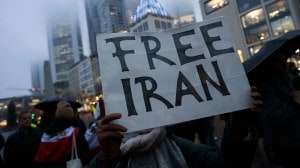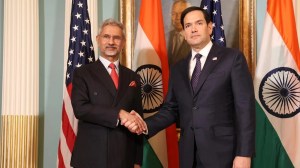A big heart would count
I Visited Nepal in August to deliver the annual lecture at the B.P. Koirala Foundation. I was last in Kathmandu in November 1993 in then ...

I Visited Nepal in August to deliver the annual lecture at the B.P. Koirala Foundation. I was last in Kathmandu in November 1993 in then Prime Minister Narasimha Rao8217;s delegation. Nepal has since been through several elections and governments. I wanted to assess both its domestic political developments and the orientation in its India policies. The visit was an education. The first point I noted was that Pakistan looms so large in our regional foreign policy that we do not pay enough attention to the sensitivities and concerns of other neighbours. The second point made to me was that India is dilatory on specific Nepalese bilateral concerns.
Electoral democracy, revived nine years ago in Nepal, is taking root. The plethoric party system and their struggle for power is accepted as vital for democracy. The monarchy firmly supports the democratic process; the King is committed to a constitutional role. If sustained this will increase the monarchy8217;s credibility as a stabilising institution. The economy is doingas well as it can given resource constraints and South Asia8217;s predicament.
I deliberately avoided Indo-Nepalese relations and, convinced of the imperative to consolidate South Asian cooperation, spoke on Our South Asian Region Challenges and Opportunities in the 21st Century8217;. I studiously avoided referring to Indo-Nepalese relations to avoid any unnecessary controversy. But most of the question-answer session was devoted to Indo-Nepalese relations. Most questions related to Nepal8217;s desire to revise the Indo-Nepal Treaty of 1950, the Nepalese claim on the Kalapani8217; region and strained Indo-Pak relations affecting South Asian development.
There were questions about India8217;s insensitivity in the Nepal-Bhutan controversy over Nepalese refugees from Bhutan who had taken refuge in Nepal. The Nepalese print media only cursorily referred to the substance of my speech. The event was used to criticise and make innuendos about India.
They accused the Koirala Foundation of being an Indian front organisation,controlled by the Indian embassy. India was accused of harbouring domineering intentions, of resiling from its general assurances on the revision of the Indo-Nepalese Treaty, and of obduracy in discussing Nepal8217;s claims on Kalapani. The media made the baseless assertion that I had a secret meeting with the King and that Prime Minister Koirala refused my request to call on him. It speculated that my views on South Asian cooperation implied Indian opposition to Nepal receiving development assistance from other sources.
Questions after my lecture were not characterised by such negative flight of fancy but they touched on the same themes, indicating critical interest in India8217;s thinking on matters of concern to Nepal. The sensitivities can be illustrated by recounting one point. I was asked why India was not mediating actively between Nepal and Bhutan to resolve the Nepalese refugee problem.
After all the Nepalese refugees had travelled through India to arrive in Bhutan. Why didn8217;t India persuade Bhutan notto take the policy decisions it did in the matter? My response was that India hoped that this primarily bilateral issue would be solved by Nepal and Bhutan. In my assessment if both sides arrived at a solution, India might be willing to assist in its implementation. I said relations with Nepal and Bhutan are equally important to India, both bilaterally and strategically.
Both are China8217;s neighbours and India attaches high importance to relations with China. India does not want to displease either Nepal or Bhutan by playing a mediatory role. I was criticised for equating Nepal and Bhutan. According to Nepalese friends Nepal was an independent, sovereign country while Bhutan was not. They proceeded to interpret my talk about Nepal and Bhutan having borders with China as an exercise in quot;China-bashing,quot; which I should not have done in Nepal. This had no relevance to my replies.
The reaction to these criticisms could be despair. But mutual interests require that we understand the logic of these concerns andcomplexes. Nepal is a land-locked country sandwiched between two large geo-political entities, India and China. This is labouring a truism. More relevant is that Indian policies make a greater impact on Nepal because of its location and religious and social links with India. The regional and world situation is not what it was when India became independent and Nepal came out of the long rule of the ranas. Nepal8217;s concerns and ideas on recasting relations reflect Nepalese perceptions about what its regional position and pattern of relations with India should be to ensure stability and economic well being.
The specific issues agitating Nepalese public opinion are the Indo-Nepal Treaty and jurisdiction over Kalapani. Succes-sive Indian prime ministers have conveyed India8217;s willingness to discuss treaty revision but concrete discussions have not been undertaken. Nepal perhaps desires to dilute its political content implying a special position for India while maintaining the special relationship in economic andother terms.
We should have early discussions on the Treaty. The first step could be to request the Nepalese government to give us an amended draft of the treaty to form the basis of negotiations. This is desirable both politically and psychologically. The jurisdictional controversy on Kalapani is more complex but India should not be too obdurate. Meaningful discussions could be based on historical records in both countries and a compromise evolved which is responsive to Nepal8217;s territorial sensitivities and India8217;s strategic interests. Delaying a solution on this small area would only make it an intractable controversy.
Three crucial issues affecting relations are the utilisation of water resources, transit facilities, and trade. Rivers flowing from Nepal into India can generate 83,000 MW of power. At least half of this is considered a practical possibility. Initiating projects, ensuring proper returns to Nepal and mutual benefit should get urgent attention. On transit facilities India8217;s approach shouldbe accommodating. The negative fallout of free transit facilities cannot really affect the substance of India8217;s economic interests. Transparent and increasingly unrestricted trade is the only way to counter illegal trade practices on both sides of the border.
Nepal has to be responsive about the trend of its territory being used by subversive elements to act against India. Preventing the spread of intelligence agencies8217; and extremist religious organisations8217; activities there to threaten India8217;s security requires Nepalese cooperation. Our peoples and leaders must realise that we cannot wish away the compulsions of geography and the inevitable links between our civil societies.
- 01
- 02
- 03
- 04
- 05































